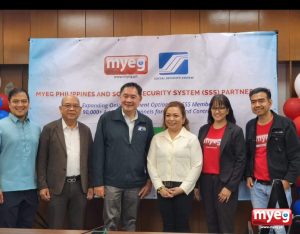Driving inclusive finance through mobile technology: Fintech leader GCash says PH making strides in promoting financial inclusion

Leveraging technology for digital finance has long been recognized by major think tanks and global, multilateral, and intergovernmental organizations as a catalyst in promoting inclusive finance especially in emerging markets like the Philippines.
Financial technology (fintech), according to studies conducted by the World Bank and Alliance for Financial Inclusion, plays a key role to providing access to the unbanked and underbanked, as it brings financial tools and instruments closer to those who need them the most.

China and India have been successful in improving the state of financial access in their countries through fintech players, and their citizens are now reaping the huge benefits of financial services today.
This was made possible by the strong government support for fintech development, given their rising mobile-first populations as well as the need for easier access to a wide range of financial services.
“Fintech addresses the barriers that are linked to the lack of access to financial tools. By using technology to simplify processes and provide an environment that is both firm and lenient, we are allowing more people to participate in the financial ecosystem through their mobile phones,” GCash President Anthony Thomas said.
Worldwide, adults without an account at a financial institution cited the lack of funds, costs, distance, and documentation requirements as major barriers to formally participating in the financial landscape.
In the Philippines, seven out of 10 households are yet to own a bank account, while around 66 percent of Filipino adults are still considered unbanked. Majority of them cited constraints such as high costs of banking, socio-economic and cultural issues, strict documentary requirements, as well as physical access to financial institutions.
However, with advances in digital technology and constant innovation, fintech players in the Philippines such as GCash have helped bring down the costs of banking, bridged gaps in documentary requirements, and provided greater access to Filipinos.
“With the use of fintech, we offer a powerful solution to expand access and promote the use of digital financial tools that are tailor fit to the needs of Filipinos. We believe that through our platform, we will be able to help bridge the gap between the banked and the unbanked,” Thomas said.
GCash has made it its goal to provide easy access to financial tools such as credit, savings, insurance, and even investments, all of which are easily available on the mobile platform for all Filipinos. Aside from being zero-rated for Globe subscribers, GCash is also telco agnostic, hence anyone with a SIM card may register and own an account.
“The opportunity for us to use our platform to provide finance for all is immense. Various data show that seven out of 10 Filipinos now own a mobile phone and at any given time, 67 million Filipinos are online. With our huge push for the use of our platform and our passion to promote inclusive finance, our platform is now being used by 20 million Filipinos to participate in the financial landscape,” Thomas said.
From only 1.8 million users in 2016, the GCash app has now grown to 20 million users, with majority of account holders using the platform for peer-to-peer money transfers, domestic remittances, and payments.
“We at GCash are proud to have gone so far, but the gargantuan task still remains — there are millions more that have yet to enjoy the life-changing benefits of being included in the financial landscape. We vow to continue to using our technology to provide a diverse suite of financial services that provides value to our customers,” Thomas said.






